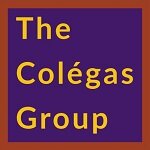Ghana’s Naming Tradition and My Connection to this Tradition
Visiting the W.E.B. Du Bois Memorial Centre for Pan-African Culture, in Accra, Ghana.
During one of my educational tours of the various museums and libraries in Ghana, I learned that Ghana has a naming tradition for those born in their country. The naming ceremony is called “Outdooring”. You can find out more about it on this Wiki page.
It is done eight days after a child is born and officially brought outdoors to greet the world. As part of your travels, you can participate in a Naming Ceremony for yourself. If you are so inclined, make sure you research the many companies that offer this service as part of the itinerary for your visit.
It was while visiting the W.E.B. Dubois Museum that I learned that Ghanaians are given a name at birth assigned to them based on the day of the week in which someone is born. For example, I was born on a Monday, so my name would be Adjoa. Below is an image of the bracelet I had made by a local craftswoman with a variation of that name on it:
A bracelet with my Ghanaian name on it
According to the article, What's Your Ghanaian Name, here is a list with the Ghanaian names you are given based on the day of the week and on your gender:
For Females:
Monday: Adjoa
Tuesday: Abena
Wednesday: Akua
Thursday: Yaa
Friday: Afua
Saturday: Ama
Sunday: Akosua
For Males:
Monday: Kojo
Tuesday: Kwabena
Wednesday: Kwaku
Thursday: Yaw
Friday: Kofi
Saturday: Kwame
Sunday: Kwesi
Integrating this in my Teaching
I did not know that my name would be Adjoa before I had the bracelet made. I had it made because it reminded me of something from my own classes that I teach.
in my Introduction to Ethnic Studies course, we watch a film called, Traces of the Trade: A Story from the Deep North. This film is about a New England family, the DeWoolfs, who were the richest slave-trading family in the United States in the 1800s. We often don’t think that there was any slave trading that took place outside of the American Southeast. However, you would be surprised to find out that Bristol, Rhode Island was the home of the most successful slave trading family in US history. It is perhaps one of the better-kept secrets of US History as it relates to the slave trade in the US.
During the film, some of the descendants visit one of the family burial grounds and stumble across a headstone. It had the names of two children, Adjuwa and Pelador. Adjuwa is a name originating in the Akan language. Pelador is either Portuguese or Spanish and means either one who peels (like potatoes), or someone who is poor. We learn in the film that those two children were purchased by one of the DeWoolf brothers on the Western coast of Africa. He brought them home as gifts for his wife. When they died, these African children (they were just young adults) were buried on the DeWoolf family property, and this is where their descendants found them.
It is ironic that I would remember this detail from the film and find someone to make a bracelet for me with that name on it. The point was to have an artifact to share with my students as we discussed the film and the experiences of Africans in the US in the 1800s under enslavement. I never imagined that I would have such a connection to the name… that this would be my name if I went through the naming ceremony.
I am still making sense of my time in Ghana. My colleagues who I traveled with felt a deep connection to the country. I did not… often I felt like a real tourist, detached from their experiences. I watched my colleagues rediscover their connection to the continent from which their own ancestors most likely were taken away. As for me, I have a stronger connection to Puerto Rico. It is my homeland, but I know that part of me also came from people stolen from the continent of Africa.
My colleagues and I share the fact that our people were Africans who were brought against their will to the Americas. My people were dropped off in Puerto Rico, and theirs on the mainland of the USA. I could not have imaged that this difference would have such a profound impact on how we experience the motherland.


